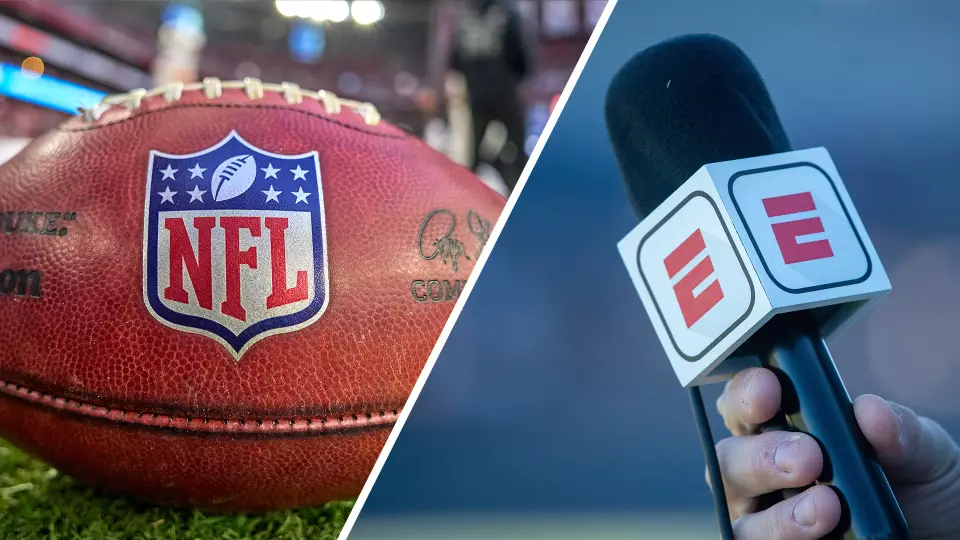ESPN’s recent acquisition of the NFL Network and associated media assets marks a pivotal shift in the landscape of sports broadcasting. This move isn’t merely about ceding rights; it embodies a transformative vision aimed at consolidating football content while leveraging ESPN’s expansive reach. By taking ownership of the NFL Network, ESPN signals a commitment to reimagining how fans consume football — seamlessly blending traditional TV, digital innovation, and exclusive content. This isn’t an ordinary business deal; it’s a bold declaration that ESPN aims to dominate football media, establishing an integrated ecosystem where every touchpoint is maximized for fan engagement and monetization.
This strategy transcends mere rights acquisition; it positions ESPN as a central hub for NFL content. The company’s control over the linear and digital rights ensures a unified brand experience, reducing fragmentation and creating an unparalleled access point for viewers. Such integration reflects a forward-thinking approach, recognizing that modern fans demand content anytime and anywhere. ESPN’s ownership extends to the popular RedZone channel, a fan-favorite for its real-time scoring updates, which will now be amplified with ESPN’s resources. This consolidation allows ESPN to curate football content more effectively, providing a comprehensive, immersive experience that surpasses what individual networks could offer alone.
Transforming Fan Engagement in the Digital Age
Perhaps the most significant aspect of this deal is ESPN’s incorporation of the NFL’s fantasy product into its platform, branding ESPN Fantasy Football as the league’s official game. This move indicates a recognition that fantasy football isn’t just a pastime but a vital component of NFL fandom today. By integrating fantasy directly into its ecosystem, ESPN doesn’t merely cater to casual fans; it aims to deepen engagement, making football part of fans’ daily digital routines. This strategic focus on fantasy demonstrates ESPN’s understanding of modern sports consumption, where participation and interaction often surpass passive viewing in importance.
Moreover, ESPN’s plans to launch its upcoming direct-to-consumer streaming service suggests a paradigm shift. This platform will serve as a digital fortress, offering a one-stop-shop for a broad array of NFL content, including the newly acquired assets and exclusive games. The move to offer 28 NFL games per season on ESPN’s platform, alongside continued NFL Network coverage, signals a competitive stance against other streaming giants and traditional broadcasters. ESPN’s approach is to make NFL content more accessible while maintaining traditional TV rights, thereby catering to a broad spectrum of viewers—from cord-cutters to die-hard cable users.
Implications for the Future of Sports Broadcasting
This deal isn’t just about acquiring rights; it’s a strategic overhaul of how sports media companies approach content and fan experience in the digital era. By owning and controlling the NFL Network, RedZone, and other key properties, ESPN establishes an integrated supply chain for football content. The strategic partnership amplifies ESPN’s position as the definitive NFL media entity, leveraging Disney’s expansive infrastructure and technological innovation.
What makes this move particularly insightful is the emphasis on expanding consumer choice. Fans will now enjoy a more cohesive experience—more live games, on-demand highlights, real-time scoring, and immersive digital features—all under the ESPN umbrella. It also demonstrates that ESPN is betting big on the future of streaming, emphasizing the importance of direct-to-consumer models in a landscape increasingly dominated by digital platforms. This shift aligns with broader industry trends where traditional broadcasters must innovate rapidly or risk obsolescence.
Through these acquisitions and integrations, ESPN isn’t merely chasing market share; it is actively shaping the future of football entertainment. The combined assets forge a more robust, fan-centric ecosystem that emphasizes accessibility, innovation, and engagement. This visionary approach will likely influence how other sports leagues and broadcasters strategize in a rapidly evolving digital universe, reinforcing ESPN’s position at the forefront of sports media evolution.

